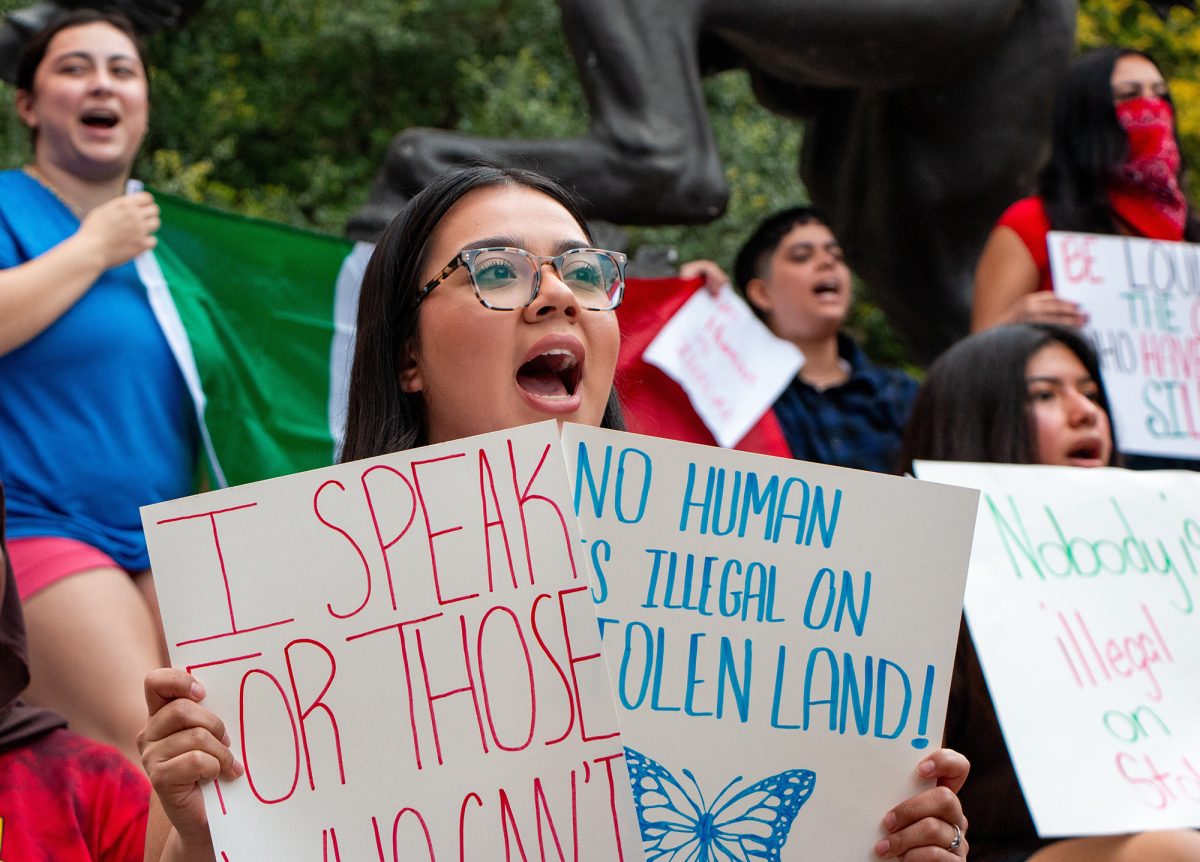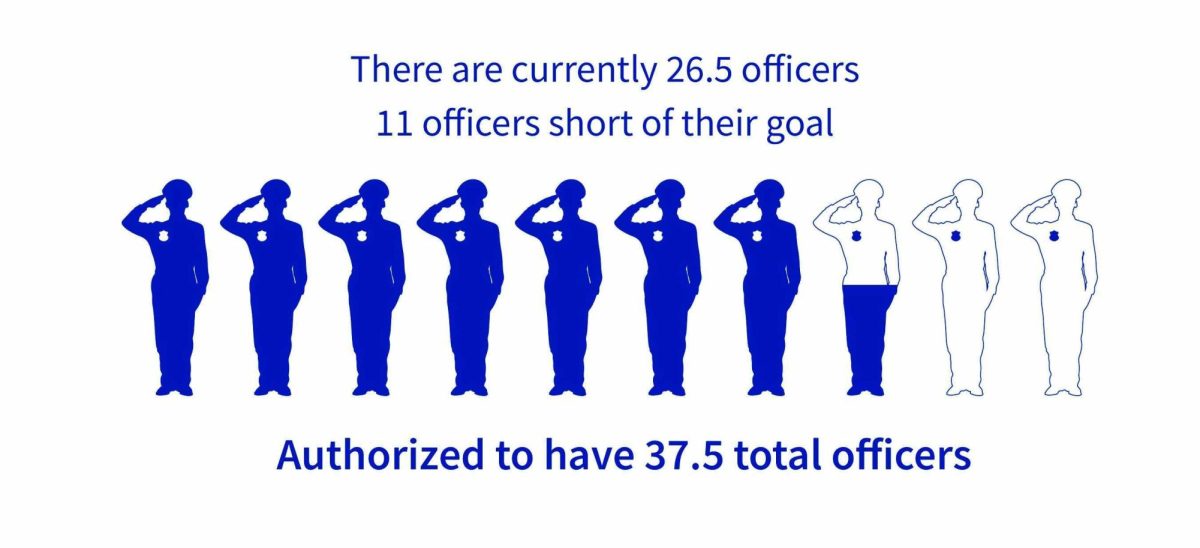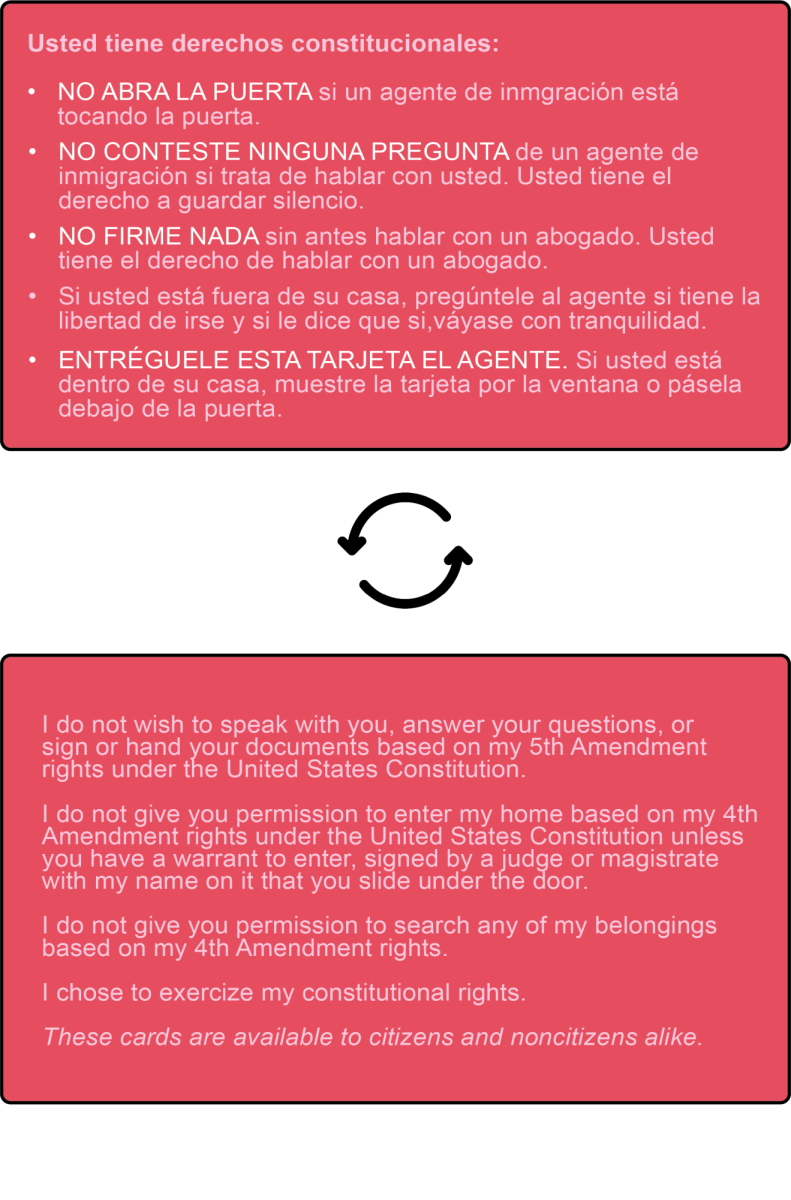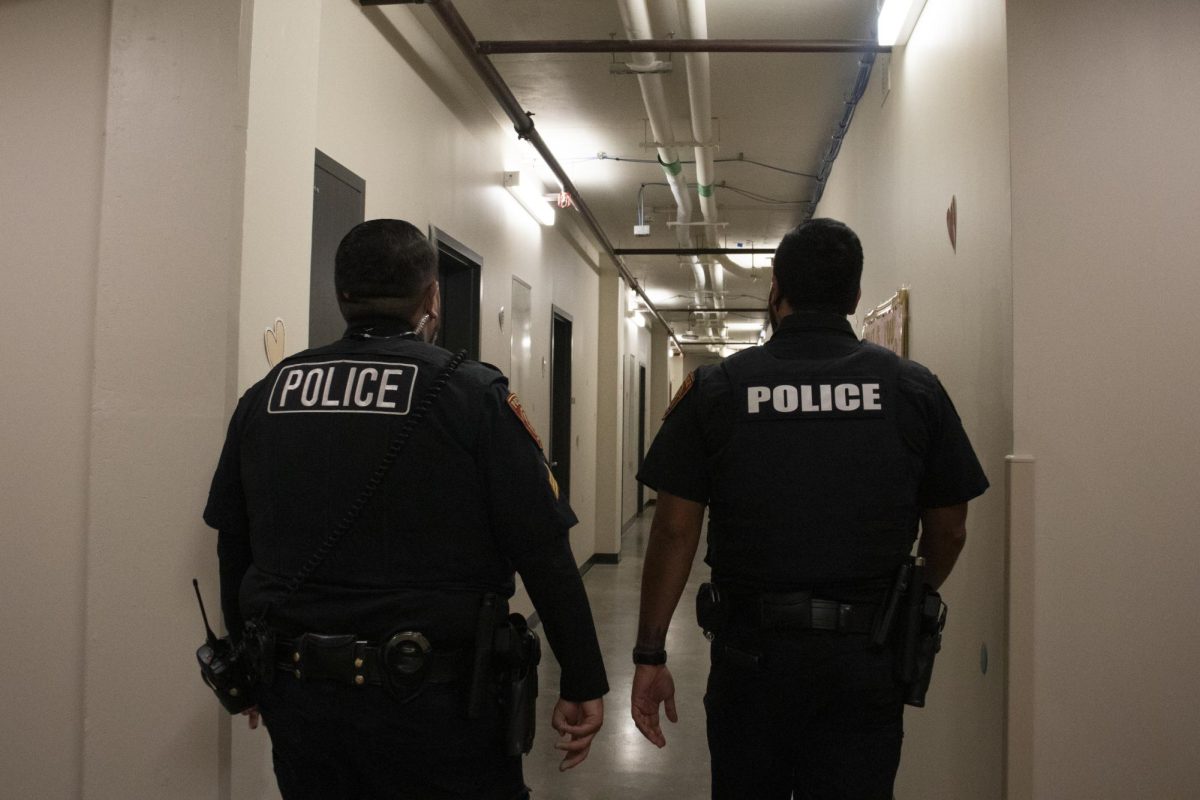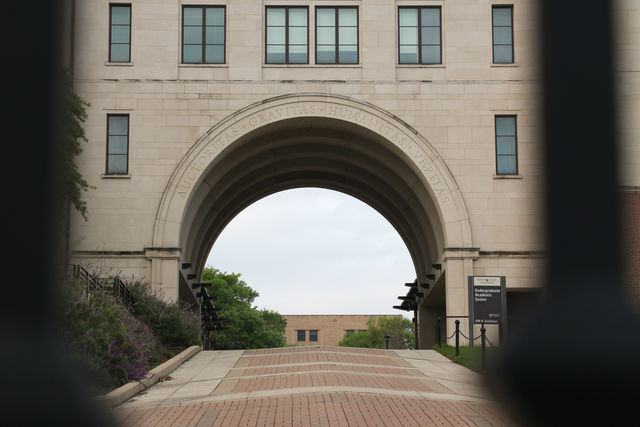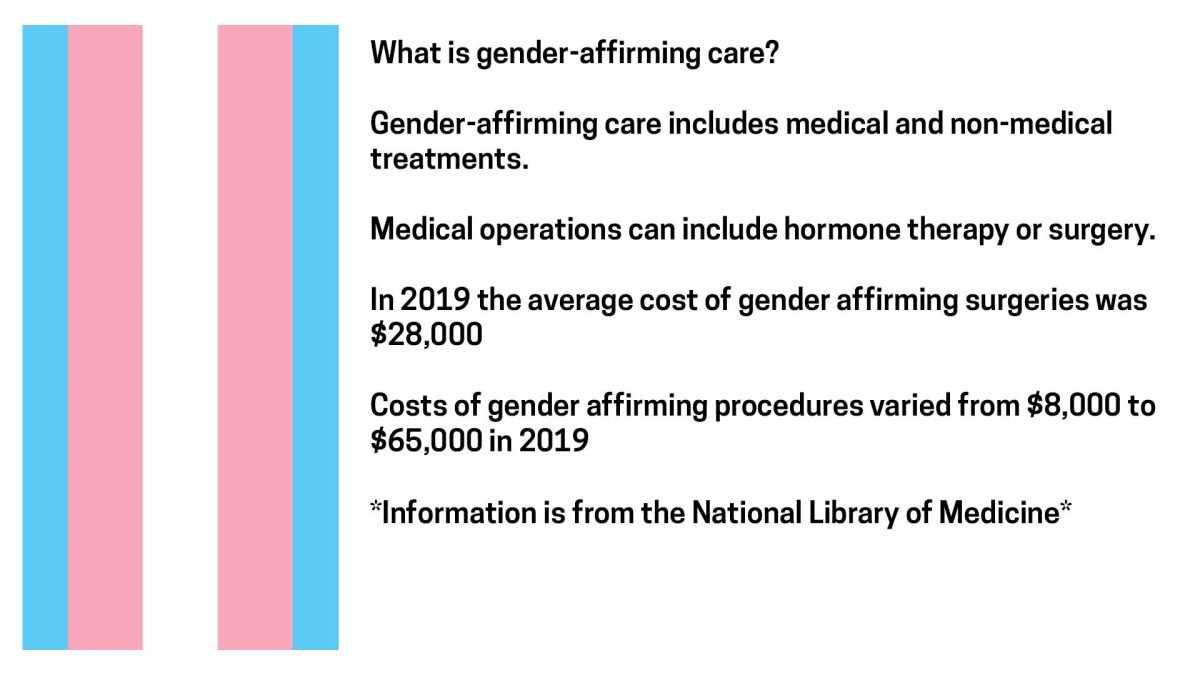Texas State outlined protocols for encounters with federal law enforcement in an email to faculty and staff on Friday, Feb. 7.
The email, sent by Finance and Support Services, came after the Department of Homeland Security (DHS) issued a directive permitting Immigration and Customs Enforcement (ICE) raids in schools, churches hospitals, courthouses and other “sensitive” areas. On Jan. 29, Gov. Greg Abbott issued a series of executive orders, requiring state agencies to assist federal immigration enforcement.
The email states faculty and staff encountering federal or state agents must remain composed, direct inquiries to the University Police Department (UPD) and promptly notify their supervisors.
The protocols also call for faculty and staff to contact the Office of General Counsel before releasing any records to ensure compliance with FERPA, HIPAA and other privacy laws.
As well as announcing the protocols, Texas State has taken down the Monarch Center and the Immigration Law section from the Attorney for Students website.
“As part of our ongoing efforts to ensure compliance with SB 17 and executive orders, the information included on the Monarch Center webpage is under review and not currently live on the DOS [Dean of Students] website,” a university spokesperson wrote in an email to The Star.
According to the spokesperson, the university is moving student support services to the CARE Center under the DOS and students seeking support can contact the office at 512-245-2124.
Before the policy was announced, students organized protests against ICE on Jan. 29 and Feb. 5 to protest the change in federal and state policies.
“We’re here protesting the mistreatment of immigrants and the wrongful incarceration of immigrants,” Leslie Tejeda-Pena, computer science freshman said.
Matthew Silva, computer science sophomore said he believes Abbott’s immigration policies don’t take into account the effects on individuals and families in Texas.
“I feel like [Abbott] doesn’t understand the impact that he’s having,” Silva said. “I don’t think he’s close enough to the people to understand… I think from his point of view he’s just looking at the numbers, not the actual lives that this is impacting.”
Immigration policy in San Marcos
The San Marcos Police Department (SMPD) adopted its policy on immigration in 2019. The policy allows SMPD officers to inquire about immigration status but does not allow them to make arrests solely based on immigration status or ICE detainers.
According to SMPD’s policy on immigration, an ICE detainer is “a 48-hour hold issued by Immigration & Customs Enforcement based upon probable cause that a person has violated immigration restrictions.”
According to SMPD Chief Stan Standridge, SMPD does not act on an ICE detainer even if they arrest someone on a local, state or national warrant.
“One thing I would stress is we typically have nothing to do with immigration status and detainers,” Standridge said. “By definition, that means detain this person until the [ICE] arrive and take custody of them. Well, where are people detained? In the county jail. [SMPD] has no internal jail.”
Standridge also said that while SMPD officers are allowed to ask questions about immigration status, they are to immediately stop that line of questioning if shown proof of residency.
“We could look at a state-issued ID card, a library card, a bill that has your name and address,” Standridge said. “Officers are taught to look at the totality of the circumstances, we’re not looking for one piece of information. We’re looking for multiple things to verify residency.”
While multiple things can be used to very residency, Standridge said that student IDs, such as those issued by Texas State would not work, as they do not include an address.
Standridge also said that SMPD may communicate with federal law enforcement when they are conducting operations in San Marcos, but SMPD will not directly play a role in serving immigration warrants or making arrests based on immigration status.
“We’re not assisting on what people call raids,” Standridge said. “We are not assisting with detaining, or warrant roundups.”
Hays County Sheriff’s Office immigration policy
In an email to The Star the Hays County Sheriff’s Office said they are “committed to upholding the law while ensuring the safety and security of all residents in our community.”
The email continued by saying that the Hays County Sheriff’s Office does not participate in immigration enforcement such as raids or mass arrests, as those are the job of federal law enforcement.
The email did say that the sheriff’s office will continue to hold individuals on ICE detainers and anywhere else they are required to by law.
According to the Hays County Jail Dashboard on Feb 10. 10.2% of the jail’s total population was made up of ICE detainees.
Karen Muñoz, justice catalyst fellow for LatinoJustice PRLDEF, said she has seen claims on social media that immigrants and undocumented individuals do not have rights under the U.S. Constitution. She said those claims are untrue and that immigrants have the same rights as citizens.
Those rights include but are not limited to the Fourth Amendment rights protecting from unreasonable search and seizures, the Fifth Amendment right to remain silent and the Sixth Amendment right to an attorney, Muñoz said.
“[Law enforcement] should not come into your home without a valid warrant. That comes from the Fourth Amendment,” Muñoz said.
According to Muñoz, two different kinds of warrants can be served by an immigration officer. The first warrant is called a judicial warrant and is issued and signed by a federal judge. The second kind of warrant is called an administrative warrant, which only has to be signed by an “immigration officer.” Muñoz said that a judicial warrant is valid to enter a home or business, but you do not have to let an ICE agent in for an administrative warrant.
“We’ve seen it happen before where they will try and use [an administrative warrant] to get into people’s homes, and it’s effective enough to get someone to consent,” Muñoz said. “So if they use this to get you to consent, then okay, they can go through now, they can go into your home through the consent route.”
Muñoz said that while immigrants and undocumented individuals have a Fifth Amendment right, they have to say they are using it when encountering law enforcement.
“You don’t have to help law enforcement do their job,” Muñoz said. “It’s also really important that any information you do give an officer is not false information. If you give a law enforcement officer false information, then you could potentially be charged with a crime.”
Nataly Avendano, the immigrant equity director for Mano Amiga, a local advocacy group, said they increased their focus on making “know your rights cards” available around Hays County due to the recent policy changes.
The “know your rights cards” also known as Red Cards or Tarjetas Rojas, are cards made by the Immigrant Legal Resource Center. The cards outline how to handle encounters with ICE, along with serving as a reminder of rights granted by the Fourth and Fifth Amendments.
“That’s a really great resource, just because of all the information that it has and you know, they can carry that with them at all times,” Avendano said. “We’ve also created our own version of an explainer of what to do if ICE shows up shows up at your home, and what to do if ICE shows up to your job.”
Both Avendano and Muñoz recommend if stopped by ICE, individuals should try to refrain from showing any foreign identification such as a passport or consular ID. Avendano recommends trying to get an enhanced library card, available through the San Marcos Public Library to local residents who are at least 18 years old. Muñoz recommends carrying around proof of residency for the last two years to avoid expedited deportation procedures.
Avendano and Muñoz also said they believe everyone should have a plan prepared for what to do and who to contact if they are detained by immigration.
“We’re recommending that they create a whole plan,” Muñoz said. “So a communication plan like who needs to be notified if I’m detained today, who can tell my boss, who can tell my roommate, who can tell my landlord, whatever upcoming bills I have, things like that.”
Muñoz recommends international students and immigrants speak with an immigration attorney. The American Immigration Lawyers Association and Department of Justice both have tools to find immigration attorneys.
“I think every student, but really, everybody who has an immigration attorney, maybe had an immigration attorney in the past, should talk to them to get specific information about their case because everything is case specific,” Muñoz said.



